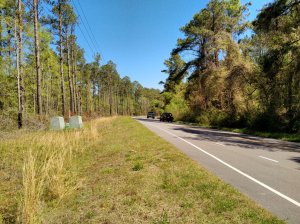Blind Sisyphus
The stone rolls back
down to the base of the
hill’s mossy slope.
Sisyphus sighs.
“Not again,” s=he says.
Suddenly, a priest appears
dressed in a white linen robe
with long brown hair
and kind, loving eyes.
“You are not alone,”
says the priest.
“But I am Sisyphus,”
says the tired,
gray-haired wo=man.
“It is my fate to roll this stone—
forever.”
“No,” the priest says,
“I too am Sisyphus.”
A chill goes up hir spine.
Sisyphus turns around and sees
people everywhere,
speaking in one voice:
“And I too am Sisyphus.”
Sisyphus wept.





